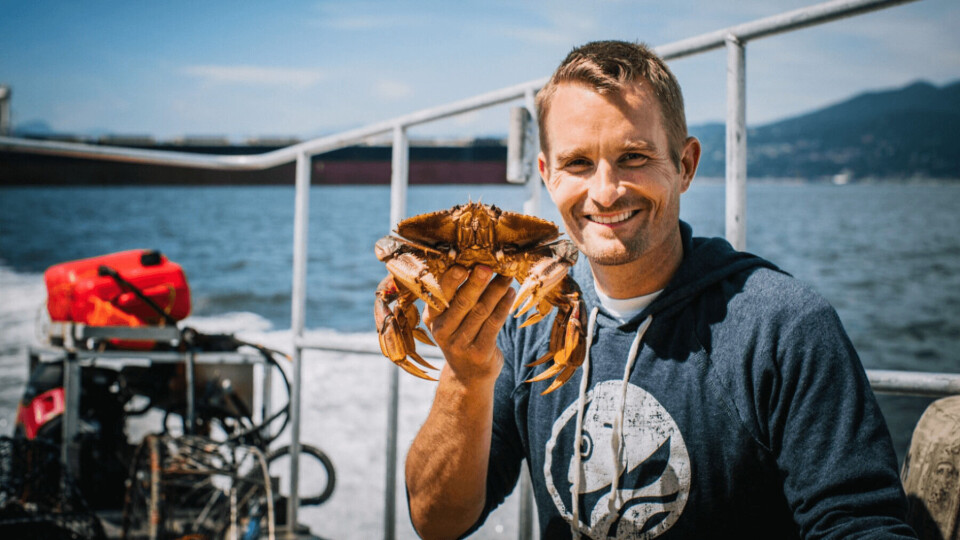
Sustainability advocate slams ‘ill-informed’ pledge to ban net-pens in BC
A Canadian celebrity chef and sustainable seafood advocate has warned that the “ill-informed” election pledge by the country’s Liberal Party to end ocean-based salmon farming in British Columbia sets the seafood industry back and could ultimately harm wild salmon.
Ned Bell was the co-presenter of how-to-cook programme It’s Just Food! and is executive chef for sustainable seafood organisation Ocean Wise and founder of Chefs for Oceans, which raises awareness about seafood sustainability issues.
In a post on his website, Bell said that he was a supporter of both fish farming and responsible wild capture fisheries, and most of all, Mother Nature.
Asked many questions
The chef said that years ago he been unsure about aquaculture but had since spent hundreds of hours on farms producing salmon and other species.
“I’ve toured their hatcheries and feed facilities, and met with the farmers, scientists, academic experts, government officials and non-profit organisations involved. I have listened intently and asked many questions,” wrote Bell.
“Through that research, I have come to trust the ocean farmers in Canada. Behind the farmers I trust the regulations and the provincial and federal Ministers of Agriculture and Fisheries, as well as the public service in these ministries. And I believe that through collaboration, public accountability and continued investments in technology and science, we will continue to improve as stewards of our ecosystems and communities. We want to grow high quality, healthy protein without harming Mother Nature, and we are capable of doing just that. In many places we already are.”
Bell added that he had found fish farmers to be “forthright, forward-thinking and willing to relentlessly solve issues”.
He continued: “I have also become convinced that the only way we will sustainably enjoy eating healthy fish into the future is through both farming and wild fisheries, done responsibly.
“Overfishing, climate change, drastic habitat degradation, urban pollution and over-exploited resources are harming healthy and resilient marine ecosystems, putting huge pressure on wild fish populations here and around the world. Wild fisheries need public support, effective regulation, transparency and consistent management. Wild fisheries also need refuge from their biggest threat: rampant illegal, unreported and unregulated (IUU) fishing. Lastly wild fisheries need consumers willing to pay a fair price for a variety of different locally caught fish.
Over-fishing
“Fish farming can help with that, by providing responsibly-raised fish we can eat along with selectively-caught local wild seafood, thus reducing pressure from over-fishing.”
Bell said fish farmers and fishermen must thrive equally, adding: “We need to get beyond the ‘us-versus-them’ situation and understand we share the same communities and, really, all of us are parts of the problem and therefore potential problem-solvers.”
He pointed out that British Columbia’s had “hard-won” sustainability certifications from the likes of Seafood Watch, Ocean Wise and Aquaculture Stewardship Council (ASC), organisations which “are committed to telling us which seafood we can responsibly consume, and which we should pass by”.
“The latest 2019 Election campaign promise to end ocean-based aquaculture is deeply concerning because it is harmful. It sets the seafood industry back and, ultimately, it could harm wild salmon,” added Bell.
“There are always challenges raising animals for consumption, but I know the large majority of our Canadian fish farmers are doing everything they can to find solutions to their specific unique set of challenges. Thanks to heavy investment of time, research and resources, fish farming has evolved and come long way in the last decade. Aquaculture in Canada is an extremely progressive, science-based, technology-focused industry. Aquaculture professionals are environmental stewards because they are extremely conscious farmers committed to ensuring that wild stocks are not harmed.
“Rather than ill-informed political promises we need real solutions.”
Part of the solution
The chef concluded: “Wild fish must not be pushed to the brink of extinction in Canada – or globally – in this century. I believe in Mother Nature, I believe we can regenerate, but it is simply not our right to take it all. Responsible Canadian fish farming is part of the solution.”
Canadians go to the polls on Monday to elect a new federal government. The Liberal Party’s manifesto states: “In British Columbia, we will work with the province to develop a responsible plan to transition from open net pen salmon farming in coastal waters to closed containment systems by 2025.”
Fish farmers have warned that the move could cost 7,000 jobs, many in remote areas where work is otherwise hard to find.
Read Bell’s full article here.























































